Despite every student in Japan being required to take English language courses, it may be difficult to find everyday people who enjoy and feel comfortable speaking the language. Sure, there are some former compulsory school students who are completely fluent in English, but overall, finding a native-level speaker or even someone confident enough to speak with can be difficult. That’s why we were surprised and pleased to watch this video of an Australian expat and his English language encounter at the McDonald’s drive-thru in Japan.
study (Page 2)
Everyone knows that there are certain nuances in every language that you just can’t learn from school. Humor, for instance, but also cursing. Sure, you might know the definitions of a few key words, but stringing them together is a task unlikely to be perfected except by those who have spent some time with folks who are native speakers.
A recent book written by MADSAKI and published by Transworld Japan is giving Japanese speakers the fine opportunity to learn how to creatively curse in American-English. Titled, How to use F*** Correctly: 99 Phrases Using F***, S***, D***, and H*** that Schools Won’t Teach You, Handle with Care, it promises 176 pages of illustrated cursing, with examples.
Japanese is not an easy language to learn. Though, we have to say, we’re not sure that any language is easy to learn when you’re a beginner! But for English speakers, Japanese is certainly one of the most difficult languages to pick up. Anyone who’s taken a class will surely remember the first time they opened their textbook and saw two massive charts full of squiggly lines and realized that they now had to learn two more alphabets! And then start on kanji…
However, it looks like one Japanese-speaking UK native has found the key to Japanese using just one word!
As we’ve said before, Japanese isn’t actually as hard to learn as it’s often made out to be. Unlike English, for example, Japanese follows its own grammatical rules far more rigidly, pronunciation is easy because there is only one variant of each vowel sound to choose from (none of this tomayto/tomahto business), and it’s possible to create entire, perfectly meaningful and valid sentences without uttering a single pronoun or bothering to conjugate a verb.
Nevertheless, the language will not magically seep into you through a desire to speak it alone — you still need to encounter and study it as often as possible. With that in mind, we’d like to present to you the six and a half resources that no dedicated student of the Japanese language should ever be without. Oh, and the good news is some of them are completely free.
I personally never really understood where the stereotype that women are bad at map-reading comes from. When most of the women in my life are more composed, logical, and organised than I or any of the guys I know, it seems odd that girls should be known as poor navigators.
If you do happen to be female and utterly hopeless with maps, though, a recent study suggests that you might benefit from playing video games more often, with findings suggesting that those who regularly pick up a controller have a better sense of direction and get lost less often.
April is the start of the academic year in Japan, and for kids, parents and stationery manufacturers that means one thing: it’s back to school shopping season. And across Japan, as elementary school students carefully write their names in their notebooks for the new year, there’s a good chance that notebook will be Showa Noto brand. The company’s gakushucho (study notebooks) are a hugely popular series of school notebooks, used by school students all over the country. Showa Noto also makes character-branded goods, and we’re desperate to get our hands on one of these new Star Wars school notebooks!
Thanks to the patient translation efforts of AltJapan Co., Ltd. co-founder Matt Alt, readers can now read, in English,most of the 90-page study on robot anime made available by the Japanese government. Titled “Nihon Animation Guide: Robot Anime-hen,” the original document was written by anime critic Ryusuke Hikawa, Sunrise head of cultural promotion Koichi Inoue, and writer Daisuke Sawaki, and compiled by Mori Building Co., which has previously also compiled reports on Japanese live-action special effects shows, movies, and other pop culture topics. In addition to these reports, the company also promotes media arts information, hosts symposiums, conducts surveys, and works on archive projects.
For Japanese people, studying English is almost a given. Even folks who may have no interest in actually leaving their home country may feel compelled to study the language for business or simply because they’re supposed to. But it’s hard to enjoy learning a language that you don’t have any interest in–and having fun is one of the best ways to facilitate learning.
This has opened up something of a cottage industry for people trying to make the learning part fun. There are nonsensical textbooks and sexy teachers, but then there are the college textbooks that seem like their authors weren’t even trying.
Well, for any Japanese English-learners who are on the verge of giving up – and perhaps for those of you struggling with learning Japanese – there may be one ray of hope still shining: Majime na Eibunpou, a surprisingly funny English grammar smartphone app!
It doesn’t matter how long you’ve studied Japanese or how many kanji you can successfully identify, if you still sound like you’re speaking English when you are in fact speaking Japanese, you’re going to look like a dumb gaijin.
But it’s hard to identify your level of fluency when it comes to pronunciation and we’re hoping the following video can help. This is hands down the best side-by-side comparison of an excellent and…shall we say “authentic American” Japanese accent executed by “twin brothers” David Ury and Ken Tanaka.
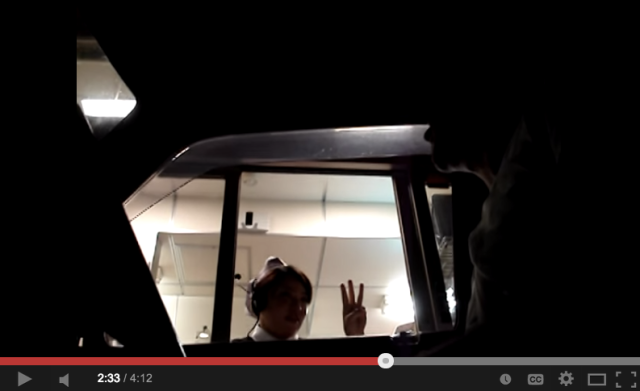

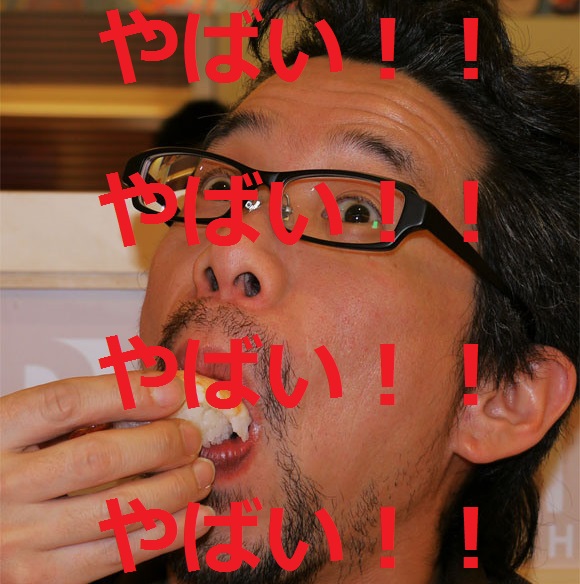
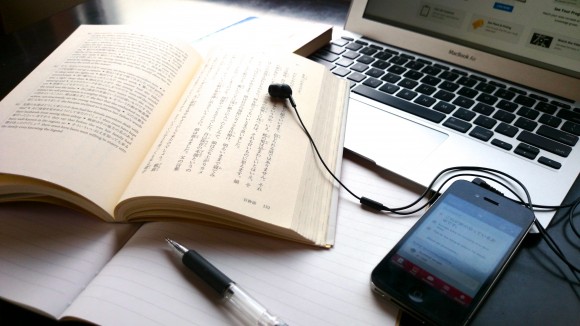

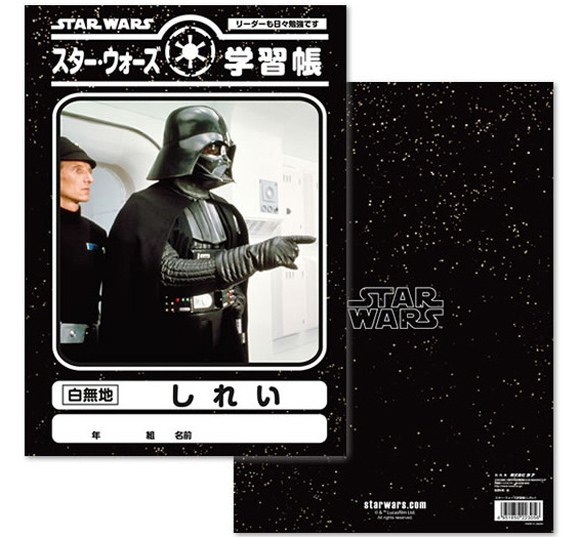

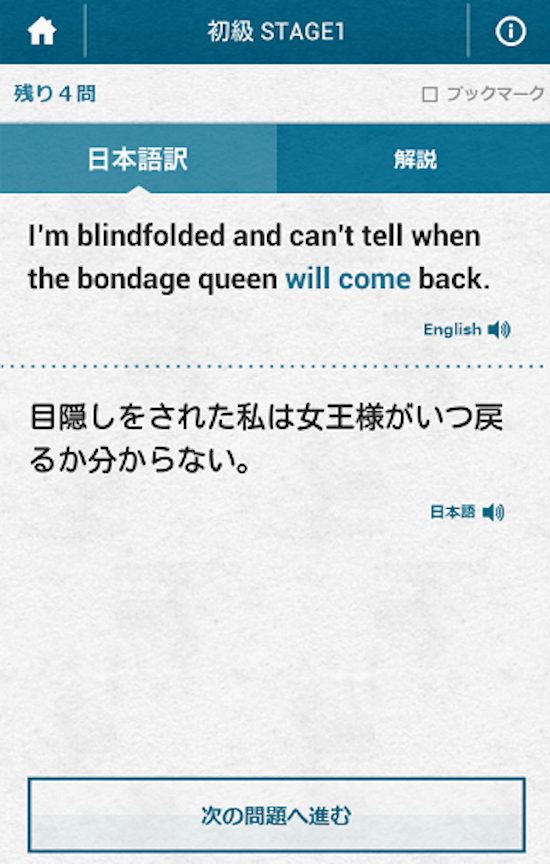

 Saitama is home to the best strawberries in Japan that you’ve probably never even heard of
Saitama is home to the best strawberries in Japan that you’ve probably never even heard of Highest Starbucks in Japan set to open this spring in the Tokyo sky
Highest Starbucks in Japan set to open this spring in the Tokyo sky Survey finds that one in five high schoolers don’t know who music legend Masaharu Fukuyama is
Survey finds that one in five high schoolers don’t know who music legend Masaharu Fukuyama is Tokyo Skytree turns pink for the cherry blossom season
Tokyo Skytree turns pink for the cherry blossom season Burning through cash just to throw things away tops list of headaches when moving house in Japan
Burning through cash just to throw things away tops list of headaches when moving house in Japan Yakuzen ramen restaurant in Tokyo is very different to a yakuza ramen restaurant
Yakuzen ramen restaurant in Tokyo is very different to a yakuza ramen restaurant Shimane’s hidden travel sites, where you can escape the crowds and enjoy traditional Japan
Shimane’s hidden travel sites, where you can escape the crowds and enjoy traditional Japan “Pepsi Ghost” brings a mysterious new flavor for Halloween in Japan
“Pepsi Ghost” brings a mysterious new flavor for Halloween in Japan What’s in a Family Mart lucky bag?
What’s in a Family Mart lucky bag? How to use Japan’s new self-checkout supermarket carts
How to use Japan’s new self-checkout supermarket carts The 10 most annoying things foreign tourists do on Japanese trains, according to locals
The 10 most annoying things foreign tourists do on Japanese trains, according to locals Starbucks Japan releases new sakura goods and drinkware for cherry blossom season 2026
Starbucks Japan releases new sakura goods and drinkware for cherry blossom season 2026 Naruto and Converse team up for new line of shinobi sneakers[Photos]
Naruto and Converse team up for new line of shinobi sneakers[Photos] Is Sapporio’s Snow Festival awesome enough to be worth visiting even if you hate the snow? [Pics]
Is Sapporio’s Snow Festival awesome enough to be worth visiting even if you hate the snow? [Pics] Japan has trams that say “sorry” while they ride around town…but why?
Japan has trams that say “sorry” while they ride around town…but why? Sakura Totoro is here to get spring started early with adorable pouches and plushies
Sakura Totoro is here to get spring started early with adorable pouches and plushies Starbucks Japan unveils new sakura Frappuccino for cherry blossom season 2026
Starbucks Japan unveils new sakura Frappuccino for cherry blossom season 2026 Poop is in full bloom at the Unko Museums for cherry blossom season
Poop is in full bloom at the Unko Museums for cherry blossom season Now is the time to visit one of Tokyo’s best off-the-beaten-path plum blossom gardens
Now is the time to visit one of Tokyo’s best off-the-beaten-path plum blossom gardens Playing Switch 2 games with just one hand is possible thanks to Japanese peripheral maker
Playing Switch 2 games with just one hand is possible thanks to Japanese peripheral maker Japan’s newest Shinkansen has no seats…or passengers [Video]
Japan’s newest Shinkansen has no seats…or passengers [Video] Foreigners accounting for over 80 percent of off-course skiers needing rescue in Japan’s Hokkaido
Foreigners accounting for over 80 percent of off-course skiers needing rescue in Japan’s Hokkaido Super-salty pizza sends six kids to the hospital in Japan, linguistics blamed
Super-salty pizza sends six kids to the hospital in Japan, linguistics blamed Foreign tourists in Japan will get free Shinkansen tickets to promote regional tourism
Foreign tourists in Japan will get free Shinkansen tickets to promote regional tourism Take a trip to Japan’s Dododo Land, the most irritating place on Earth
Take a trip to Japan’s Dododo Land, the most irritating place on Earth Archfiend Hello Kitty appears as Sanrio launches new team-up with Yu-Gi-Oh【Pics】
Archfiend Hello Kitty appears as Sanrio launches new team-up with Yu-Gi-Oh【Pics】 Survey asks foreign tourists what bothered them in Japan, more than half gave same answer
Survey asks foreign tourists what bothered them in Japan, more than half gave same answer Japan’s human washing machines will go on sale to general public, demos to be held in Tokyo
Japan’s human washing machines will go on sale to general public, demos to be held in Tokyo Starbucks Japan releases new drinkware and goods for Valentine’s Day
Starbucks Japan releases new drinkware and goods for Valentine’s Day We deeply regret going into this tunnel on our walk in the mountains of Japan
We deeply regret going into this tunnel on our walk in the mountains of Japan Studio Ghibli releases Kodama forest spirits from Princess Mononoke to light up your home
Studio Ghibli releases Kodama forest spirits from Princess Mononoke to light up your home Major Japanese hotel chain says reservations via overseas booking sites may not be valid
Major Japanese hotel chain says reservations via overseas booking sites may not be valid Put sesame oil in your coffee? Japanese maker says it’s the best way to start your day【Taste test】
Put sesame oil in your coffee? Japanese maker says it’s the best way to start your day【Taste test】 No more using real katana for tourism activities, Japan’s National Police Agency says
No more using real katana for tourism activities, Japan’s National Police Agency says Yakuzen ramen restaurant in Tokyo is very different to a yakuza ramen restaurant
Yakuzen ramen restaurant in Tokyo is very different to a yakuza ramen restaurant Shimane’s hidden travel sites, where you can escape the crowds and enjoy traditional Japan
Shimane’s hidden travel sites, where you can escape the crowds and enjoy traditional Japan “Pepsi Ghost” brings a mysterious new flavor for Halloween in Japan
“Pepsi Ghost” brings a mysterious new flavor for Halloween in Japan What’s in a Family Mart lucky bag?
What’s in a Family Mart lucky bag? How to use Japan’s new self-checkout supermarket carts
How to use Japan’s new self-checkout supermarket carts Osaka establishes first designated smoking area in Dotonbori canal district to fight “overtourism”
Osaka establishes first designated smoking area in Dotonbori canal district to fight “overtourism” In search of Japan’s hidden double pay phones
In search of Japan’s hidden double pay phones Subway Japan purchased by Japanese izakaya pub company with penchant for organic farming
Subway Japan purchased by Japanese izakaya pub company with penchant for organic farming We try “Bubble Soccer,” body slam and laugh the entire time
We try “Bubble Soccer,” body slam and laugh the entire time Number of foreign students in Japan hits record high, one country accounts for over 35 percent
Number of foreign students in Japan hits record high, one country accounts for over 35 percent Senkoji: The Japanese temple that’s more like a theme park to heaven and hell
Senkoji: The Japanese temple that’s more like a theme park to heaven and hell New zombie ship sets sail in Japan, includes Shinkansen tickets and all-you-can-eat sushi
New zombie ship sets sail in Japan, includes Shinkansen tickets and all-you-can-eat sushi Starbucks Japan adds a new milk tea Frappucino to its lineup for a limited time
Starbucks Japan adds a new milk tea Frappucino to its lineup for a limited time Shimane has a secret hot spring town that feels like stepping into an old Japanese film
Shimane has a secret hot spring town that feels like stepping into an old Japanese film